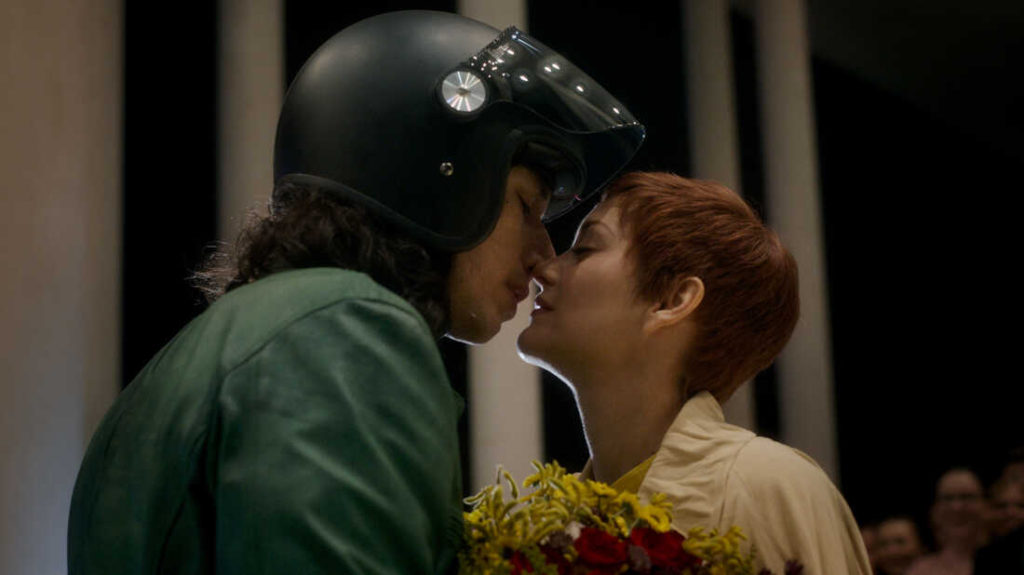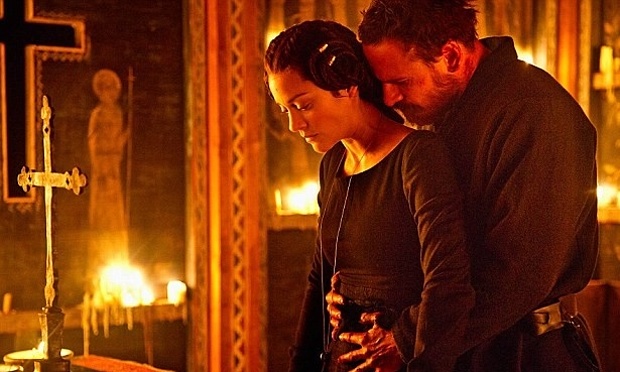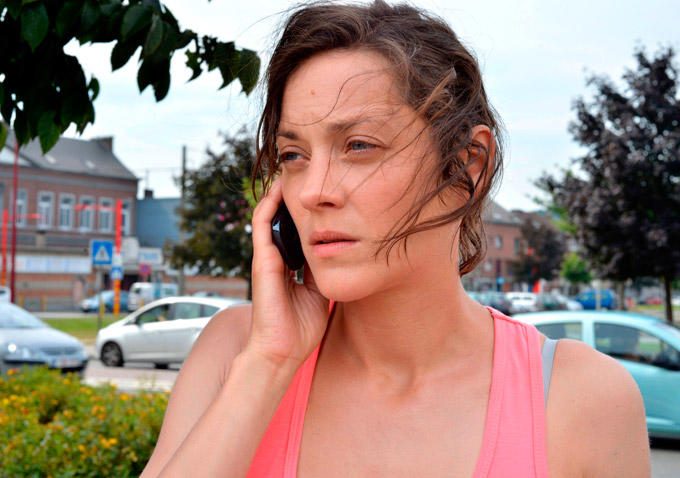
You’ve never seen anything like the much ballyhooed art house musical Annette, and there’s a reason for that. At its best, Annette is a passionate and inventive pop opera. At its worst, it’s a cinematic death march – a noirish Umbrellas of Cherbourg with a spooky puppet baby.
Annette is a musical, written by Ron and Russell Mael of the art pop band, the subjects of this year’s fine documentary The Sparks Brothers. The Maels wrote and perform the songs, and appear in the movie.
Henry (Adam Driver) is a successful cult comedian, and Ann (Marion Cotillard) is a star opera soprano. They are newly in love, becoming a darling-of-the-tabloids celebrity couple, and soon marry and have a baby daughter Annette. Then there are warning signs that the relationship will turn dark, and a tragedy ensues. Then things get very weird, up to an intense final scene in a prison visiting room.
Annette begins with a thrilling uninterrupted shot of Spark performing the song So May We Start, with the Maels joined by the cast in street clothes as they leave the studio and walk Los Angeles streets, transitioning into their costumes and characters. This is followed by the equally wonderful song We Love Each Other So Much and a montage of romantic passion. All promising, but then Annette plunges off the rails.

The baby Annette is played by a puppet, which the actors treat as if it were a real baby. The infant puppet is extremely creepy, reminding me of the hundred-year-old dolls that freak out The Wife and me when we watch Antiques Roadshow. The toddler puppet is less unsettling, but still distracting for me.
The character of Henry is tormented by inner demons. Henry’s belligerent stage persona is intentionally provocative, and he performs in underwear and a bathrobe. He revels in being a public Bad Boy, but there are plenty of warning signs that it’s not just all an act.
Adam Driver is effective playing Henry, who is selfish, unpleasant and more than a little scary. But the screenplay lets him down. Annette is really about Henry, an unsympathetic character who is just not interesting enough. He’s no Iago. He’s no Travis Bickle. Just an asshole who stains the lives of others.
Cotillard, on the other hand, doesn’t have to do much to except sing beautifully and be angelic. Simon Helberg is also very good in the other significant role.
The most startling performance is by five-year-old Devyn McDowell, who replaces the puppet as a live-action Annette in the final scene. McDowell, who was singing on Broadway at age four, is a revelation in a nose-to-nose vocal duel with Driver. She’s already a great singer and a superb actress. Wow.
Annette was directed by Leos Carax, the wildman of French cinema, who made the spectacularly weird Holy Motors. Carax gets the weirdness right in Annette, especially in a nightmare Ann has while napping in the back of her limo. But he can be blamed for the puppet and the pacing, which becomes tiresome.
The Maels are cinephiles who were frustrated when their film project with the great French auteur Jacques Tati was aborted in the late 1970s. Two decades later, they invested six years working on a Tim Burton movie that didn’t happen. Now they have written a film that not only got made, but that premiered as the opening film of the Cannes Film Festival. Good for them.
The critic Jason Gorber had it right about Annette when he noted, “Twenty minutes of terrific cobbled to two hours of tedium may not be to everyone’s taste“. Annette begins and ends stirringly, but, overall, it’s a trudge with a flawed screenplay, bad pacing and that unfortunate puppet baby.


